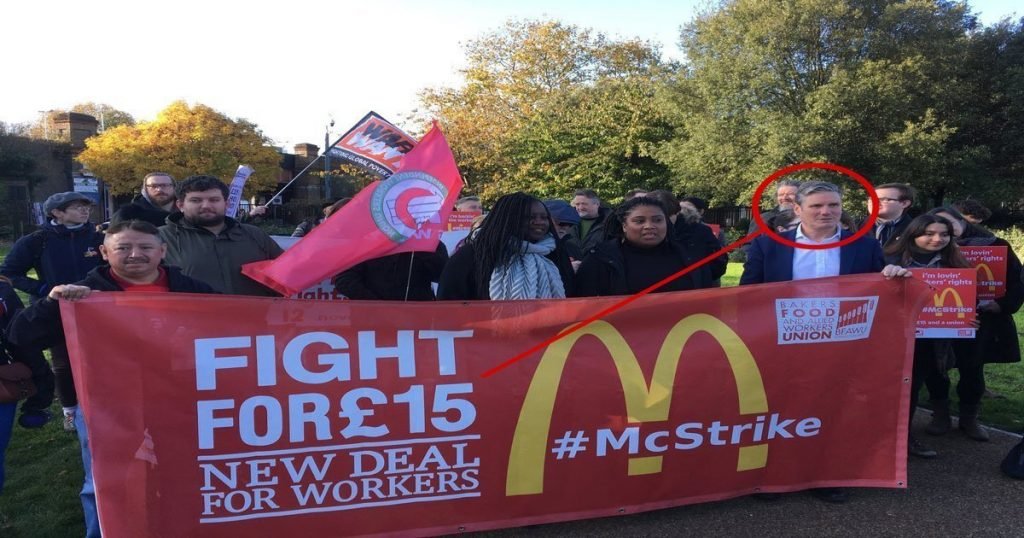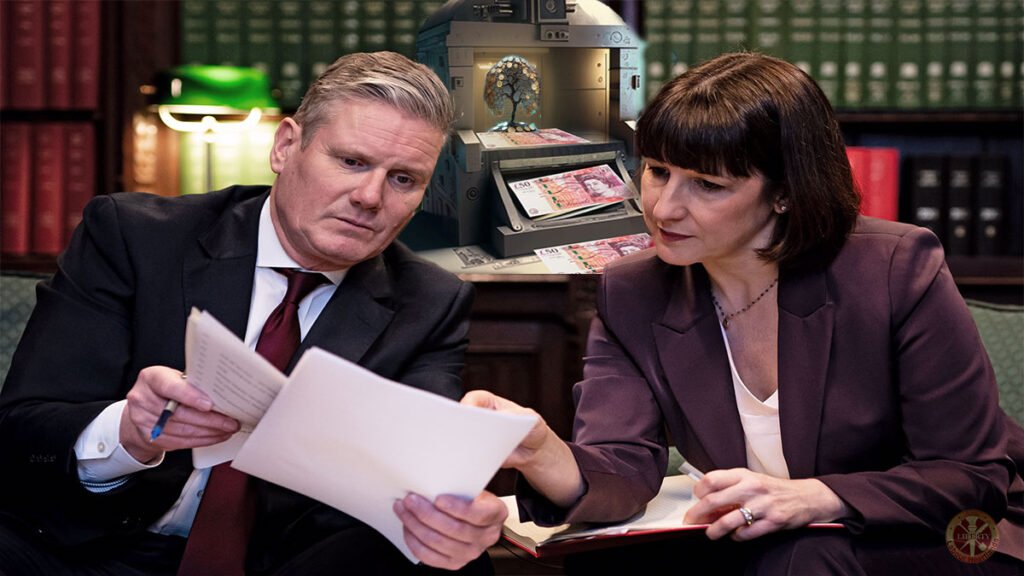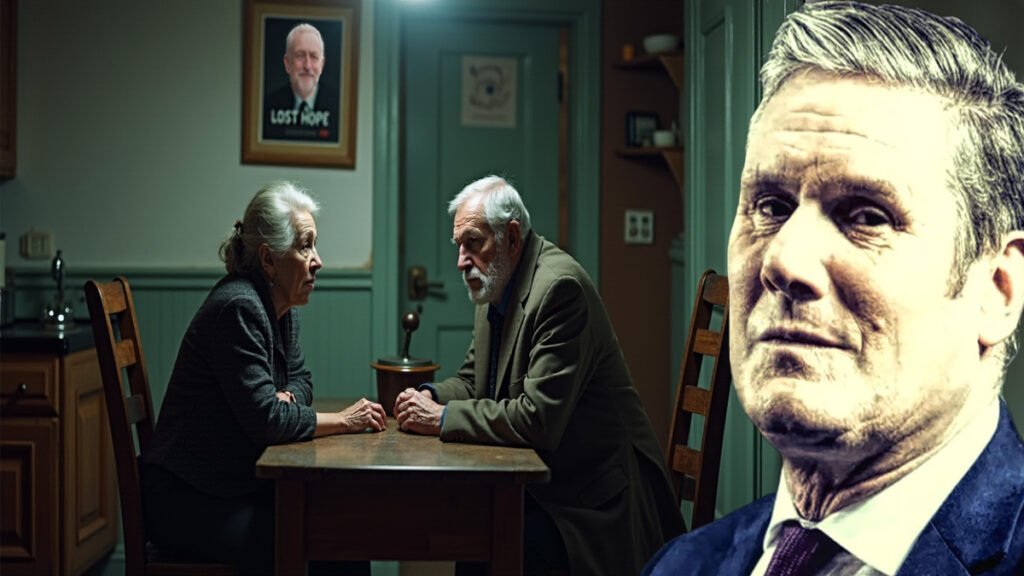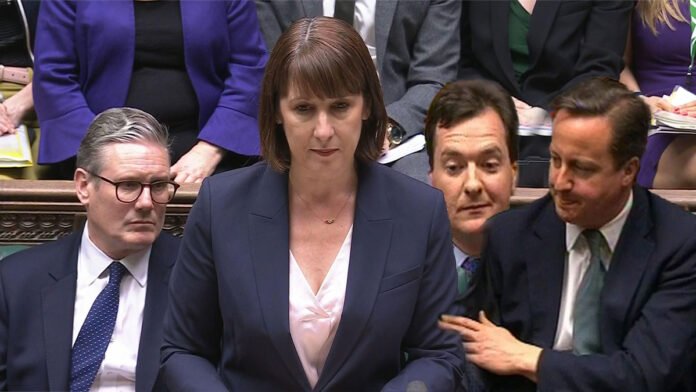Rachel Reeves’ £12.21 Minimum Wage: Just Don’t Cut It!
When Alistair Darling last brandished the Chancellor’s red box from 11 Downing Street in March 2010, Labour still believed in protecting society’s most vulnerable. His final act as Chancellor? A £600 million commitment to the Winter Fuel Allowance – a lifeline now stripped from most pensioners by the very party that created it.
Fast forward to Rachel Reeves’ latest budget, and we witness the peculiar spectacle of a Labour Chancellor embracing austerity’s ghost. Yes, the minimum wage will rise to £12.21 per hour, delivering a £1,400 annual boost to over 3 million workers. Young workers aged 18-20 will see their hourly rate jump to £10 – the largest increase on record. But let’s be clear: this still falls short of the real Living Wage of £12.60 an hour and £13.85 in London that 15,000 employers already voluntarily pay.
Of course, some of us will remember when Starmer wholeheartedly pretended to campaign for a £15 minimum wage…

Meanwhile, the supposed party of working people has launched a £20 billion raid on employers through National Insurance hikes – a move the CBI warns will strangle investment and suppress wages. The decision to extend the six-year freeze on tax thresholds amounts to a stealth tax on ordinary workers.

This timid tinkering comes against a backdrop of unprecedented economic pressure. Mortgage rates, rent, and consumer debt have all skyrocketed. Though inflation has retreated from its 40-year peak of 11.1% in October 2022, prices aren’t falling – they’re just rising less rapidly. The Russia-Ukraine war’s impact on energy markets, combined with post-pandemic demand, continues to squeeze household budgets. The services sector keeps pushing prices upward, from restaurant meals to haircuts.
Gas and electricity prices have risen by 10% in England, Scotland and Wales. It means the typical annual dual-fuel bill paid by direct debit is £1,717. Between 1 October and 31 December, gas prices will be capped at 6.24p per kilowatt hour (kWh), and electricity at 24.50p per kWh, external.
The rise to £1,717 per year for a dual-fuel direct debit household using a typical amount of energy is a £149 increase.

The cruel irony? Workers won’t see these wage increases until April 2025, leaving them to weather another year of financial storms with inadequate protection. This isn’t the bold, progressive economic vision Labour once championed – it’s managed decline dressed in social democratic clothing.
Not to mention Sir Keir Starmer has announcement that bus fares will rise to £3, abandoning the previous £2 cap with all the careful consideration of someone who’s never had to count pennies for their weekly commute.
About 3.4 million people in England use buses. Many low-paid workers commuting into towns and cities will feel the sticky end of this hike. The mathematics of betrayal is simple enough. For a worker making two journeys a day, five days a week, this £1 increase amounts to an extra £520 annually –. This from a Party that once promised to put “working people first.” First in line to pay, perhaps.
So who’s optimistic about this budget? Certainly not the pensioners losing their winter fuel support. Not the workers watching their real wages stagnate. Not the businesses facing higher costs that threaten jobs. Perhaps only those who believe that Labour’s transformation into fiscal conservatives represents progress.
The question isn’t whether this budget goes far enough – it’s whether Labour remembers what ‘far enough’ looks like for the working people they claim to represent.
Come today’s budget I’ll be pleased to write some good news, but I won’t hold my breath…
Support Independent Journalism Today
Our unwavering dedication is to provide you with unbiased news, diverse perspectives, and insightful opinions. We're on a mission to ensure that those in positions of power are held accountable for their actions, but we can't do it alone. Labour Heartlands is primarily funded by me, Paul Knaggs, and by the generous contributions of readers like you. Your donations keep us going and help us uphold the principles of independent journalism. Join us in our quest for truth, transparency, and accountability – donate today and be a part of our mission!
Like everyone else, we're facing challenges, and we need your help to stay online and continue providing crucial journalism. Every contribution, no matter how small, goes a long way in helping us thrive. By becoming one of our donors, you become a vital part of our mission to uncover the truth and uphold the values of democracy.
While we maintain our independence from political affiliations, we stand united against corruption, injustice, and the erosion of free speech, truth, and democracy. We believe in the power of accurate information in a democracy, and we consider facts non-negotiable.
Your support, no matter the amount, can make a significant impact. Together, we can make a difference and continue our journey toward a more informed and just society.
Thank you for supporting Labour Heartlands









